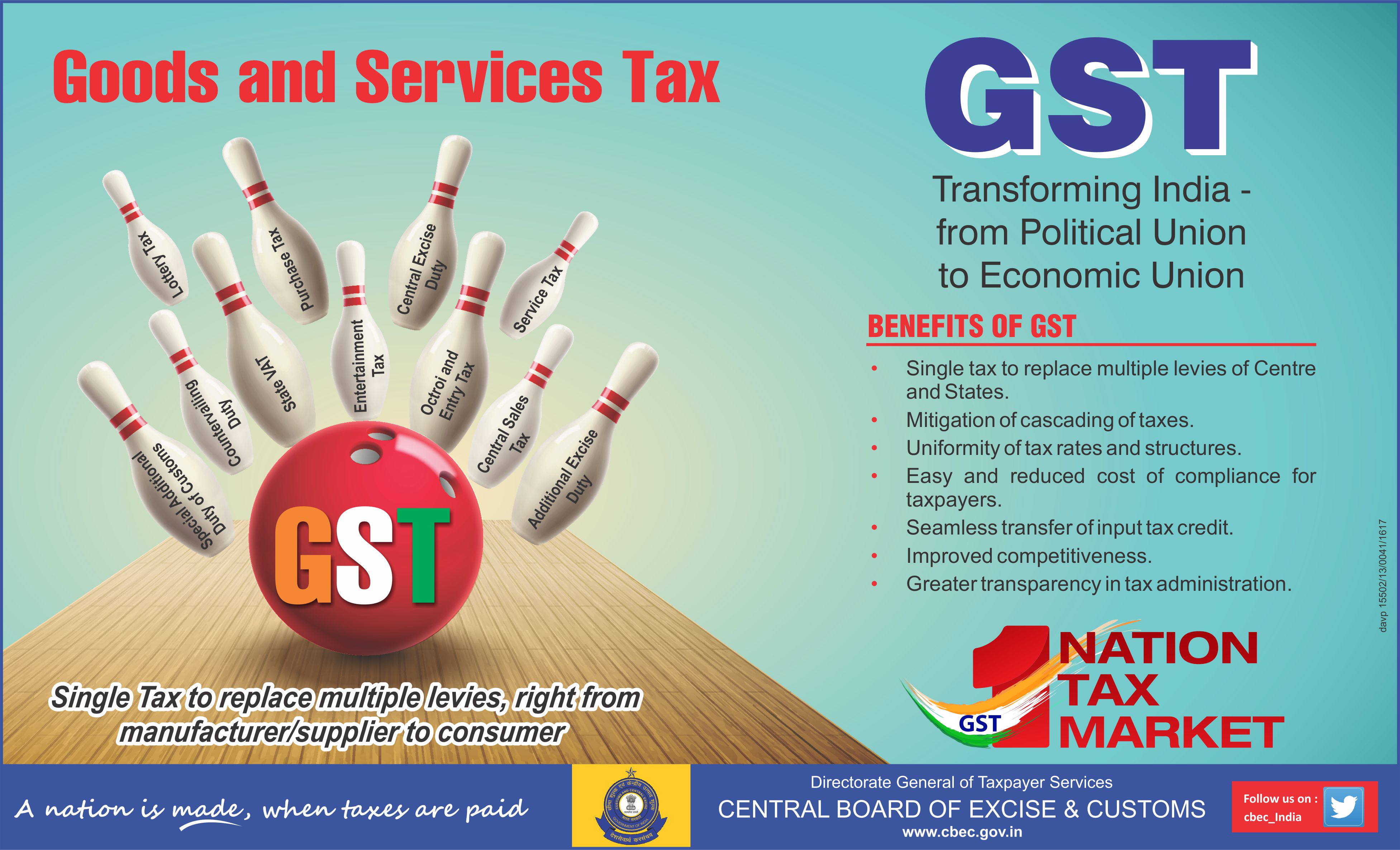
Goods and Service Tax (GST) is all set to roll out by 01st July this year. Government has already conveyed this message to all the department, Industries and companies with advise to change their system, software as per the requirement of GST. Banking Sector, which is already under stress with many reason like higher NPA, lower growth, shrinking margins etc, GST is new set of headache.
Majority of Indian Banks are not yet ready for GST roll out because their system is currently not upgraded for accepting the new tax rules. Each of the banks doesn’t have much ideas about the GST hence they are not in level to finalize the software change. Many of public sector banks, scheduled banks and smaller private banks began re configuring their systems recently about a week ago or haven’t even started. Public Sector State-owned banks including Bank of Baroda, Indian Overseas Bank, Vijaya Bank and Indian Bank and scheduled banks Saraswat Bank, RBL and DCB called for proposals from IT companies this week only.
GST Calculator : Click here to calculate
There are major challenges in front of Banking Industry in implementing the GST, Majority of them are :
- Problem in submission of Returns :
Most banks in India are currently having a branch in all the states and UT . Majority of these nationalized bank has taken centralized registration’ under service tax under which bank are filing only two returns on an annual basis as a service tax assesses. GST roll out will substantially increase the compliance levels because in GST regime bank might be required to file as many as 61 returns per year for every State they are present in (five returns per month plus one annual return).
2. Determining the Place of Consumption for Filling GST Correctly in case of CBS/NEFT/RTGS :
Goods and Service tax is place of supply based tax regime. It means for every transaction under GST, while paying GST , bank will need to determine the place of consumption. GST will be paid through the state where the consumption is made. Banking transaction in Core Banking System (CBS) made a lot of transaction through out India through various Mode of transaction. These transaction may be conducted within and outside States, determining the place of transaction in term of supply is not easy.
3. Determining the Transaction as intra-state or inter-state for IGST payment :
Goods and Service Tax (GST) model is complicated. They are having model of intra-state or inter-state on the assesses. Bank branches in India do millions of transaction daily from one state to another state. Bank will have to decide the transaction details against payment of Central GST (CGST) and State GST (SGST) or Integrated GST (IGST).
Read : How To Link Aadhaar With PAN Through Income Tax Website ?
Other types of transaction which attract the IGST are :
a) Moreover, inter-state supplies of goods or services (or both) between two branches of the same bank, located in two States, will attract IGST. Under this process credit will be made to the receiving branch. But filtering such transaction from million of transaction daily is difficult task.
b.) Finding correct receipt of services for calculation of GST or IGST is very difficult task. Typically, the place of consumption for banking services is the location of the recipient of services on the records of the supplier. But there could be a dispute on who the service recipient is.
4. Legal disputes for Taxpayers incase of claiming refund of Taxes :
In the existing system, the GST legislation provides that if an asses see paid wrongly on any transaction which is made inter state under CGST and SGS, instead of IGST, then they will have to pay the correct taxes (i.e. IGST) again and claim a refund for wrongfully paid taxes. GST put onus on the taxpayer to determine whether the transaction is intra-state or inter-state, it should be simplest redressal mechanism.
5. Taxability of Interest in GST :
Goods and Service Tax (GST) defines service in a wide manner to cover anything other than goods to be taxed which may cover interest as well. Existing system there is no provision of taxed interest. There is confusion rolled over ‘Interest’ to treat as service because it is considered as time value of money or a consideration for lending money. But Current draft law of GST doesn’t clarify whether interest is outside the ambit of GST. If interest is not expected to attract GST, it will have implications on input tax credits claimed by banks.
Read : Download Income Tax Calculator FY 2016-17, AY 2017-18 in Excel Format
6. Calculating Correct GST Tax :
Currently the Service tax inclusive of all comes to 15% where as under GST, services are expected to attract 18% GST. There is a increase in 3% from the current service tax rate of 15%. Basic services of banks like ATM card issuance, Cheque books and demand drafts will be costlier now. This will either decrease their income margin if doesn’t pass on to customer or more expensive, particularly for retail customers.
7. Product Specific GST Rate :
Banks are dealing in numerous products like gold bond where a concessional GST rate is expected to be applicable. Similar in other products also. Banks has to carefully look after each of the products in determining the correct GST.











Do You Want To Say Something :